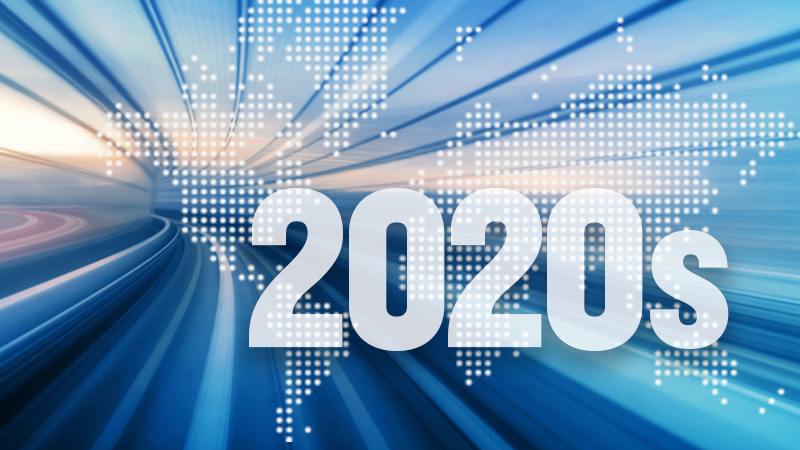
I blogged the other day about a $3 trillion spending spree, that I just didn’t see happening. The points I made were:
- it is the higher income families who have been most comfortable during this lockdown, along with essential workers who have seen no change in pay; but
- who has savings? most people have had to use all of their reserves to survive the last year; which is why
- there’s going to be no major rush to get out more and do more shopping; as
- the fact that we’ve got used to working and shopping from home, as well as being entertained at home, is a permanent shift and not temporary; and, as a result
- I don’t see anyone rushing back to enjoy a daily commute for hours per day to and from the big cities.
Another factor is the nature of the K-shaped economy we have today. In another recent blog, I noted that 2020 is K-shaped. Digital companies like Amazon and Apple, and cryptocurrencies like bitcoin and ether, have had an amazing 2020. Meanwhile, companies from John Lewis to Debenhams are diving. It’s all about the upside of the K being digital, and the downside being physical.
Main street is empty, but the internet is full. It’s so full that when I didn’t order something online the other day, the delivery guy knocked at the door asking if we were OK? Everyone is ordering online, which is why digital companies are doing well and physical firms are doing badly.
These factors raise a number of questions about the longer-term, as what I’ve described are short-term things. The influences on our behaviours and banking are ruled by our immediate experiences yet, if you look back a century, the 2020s may well look like the 1920s. Going back 100 years to 1921, what was the world like? From Wikipedia:
The Roaring Twenties was a period of economic prosperity with a distinctive cultural edge in the United States and Europe. This period saw the large-scale development and use of automobiles, telephones, films, radio, and electrical appliances in the lives of millions. Aviation soon became a business. Nations saw rapid industrial and economic growth, accelerated consumer demand, and introduced significant new trends in lifestyle and culture. Jazz blossomed, the flapper redefined the modern look and Art Deco peaked. The media, funded by the new industry of mass-market advertising driving consumer demand, focused on celebrities, especially sports heroes and movie stars. In many major democratic nations, women won the right to vote. By the middle of the decade, prosperity was widespread, with the second half of the decade known, especially in Germany, as the "Golden Twenties".
The key to this decade a century ago was the overhang of the First World War. Yes, America saw booming decadence, which led to the prohibition, but some countries suffered badly as many men died in the war and, for some countries, a huge four-year period of contraction occurred. In fact, it lasted longer than this, as people were risk-averse post-war.
The 1920s are sometimes referred to as the ‘roaring twenties’, but for the UK economy, it was a period of depression, deflation and a steady decline in the UK’s former economic pre-eminence.
As often commented, the future is distributed unevenly and not everyone had a roaring twenties.
This is an interesting lesson: yes, we saw the Cabaret Berlin, the Art Deco France and the prohibition Mafia a century ago. What will we see today?
Well, it is obvious that technological progress will continue, particularly around blockchain, digital currencies and artificial intelligence but the future is unevenly distributed. So, you have to ask: who is leading this race? Oh, it’s China!
China’s been working on these areas for years, and see technological innovation at the heart of their future. Then, add another spice to the mix: Covid_19.
The Asian economies have survived the pandemic well, whilst Europe and the Americas have been devastated. Put it another way: a good question is that we are seeing huge and massive wealth pent-up and built-up during this pandemic, and ask which countries have people who have huge amounts of pent-up and built-up wealth? The answer is: not Europe and America. It's Asia.
My guess would be, come 2025, that we will see a clear switch between Western and Eastern influences – and I hate using those terms as who is West and East of whom? – but I do see an Asian decade of glory and a European and American decade of decay.
Fairly sure my readers will disagree, hate me for saying it and argue that there’s plenty of wealth to tap into. I disagree. Which governments are in the worst state today, and which are in the best? Which economies are struggling the most today, because of lockdowns, and which have unlocked?
Tomorrow, from 2025 onwards, we will have another roaring 20s. But the 2020s will be turbo-charged by Asia and not by Cabarets, Art Deco and automobiles.
Chris M Skinner
Chris Skinner is best known as an independent commentator on the financial markets through his blog, TheFinanser.com, as author of the bestselling book Digital Bank, and Chair of the European networking forum the Financial Services Club. He has been voted one of the most influential people in banking by The Financial Brand (as well as one of the best blogs), a FinTech Titan (Next Bank), one of the Fintech Leaders you need to follow (City AM, Deluxe and Jax Finance), as well as one of the Top 40 most influential people in financial technology by the Wall Street Journal's Financial News. To learn more click here...

